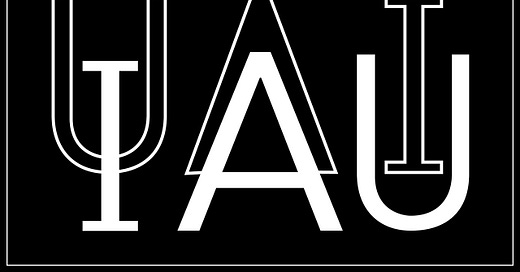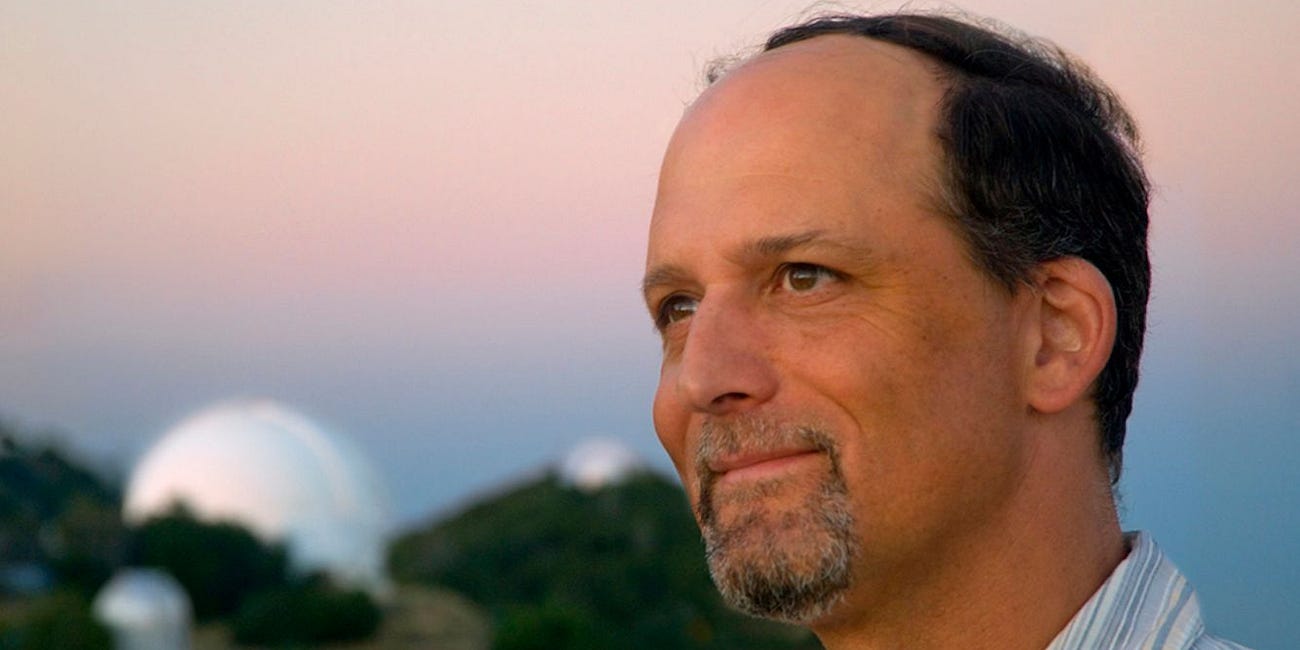Outrage against Outrage sometimes works!
The International Astronomical Union makes a rational decision to not punish people by association, and more...
In May, I wrote an article in Quillette, which I later summarized in Critical Mass:
A Dangerous Attack on the Scientific Process
Over the past few months, a firestorm began online in response to an innocuous sounding scientific paper submitted to the online arXiv, entitled ‘The Kepler Giant Planet Search. I: A Decade of Kepler Planet Host Radial Velocities from W. M. Keck Observatory
In the article described the efforts of an online mob that led to the removal of the astrophysicist Geoff Marcy from the author list of a scientific article to which he had contributed, and also described further egregious actions taken against his collaborators, including Beatriz Villarroel, who was blocked from attending meetings and submitting grant proposals because she was a collaborator of Marcy’s. Subsequently, Villarroel described her own experiences in Critical Mass, and other authors including Janice Fiamengo, spoke out against these obvious attacks on scientific integrity, and human decency, as they were leveled against Marcy and Villarroel.
A great deal of discussion, some in public, and some behind closed doors at scientific institutions, ensued, as the American Astronomical Society, which publishes the journal to which the offending article had been submitted, and which first seemed to support the proposed action, had to consider whether this action violated their own policies governing authorship of published papers. To my knowledge this discussion is ongoing.
At least one organization, the International Astronomical Union—which officially represents the largest and most international group of astronomers, and is involved in determining such things as the naming of astronomical objects besides organizing a host of meetings on various topics in astronomy that annually take place around the globe—has acted, and the response is heartening.
Earlier this week, they released their new IAU Code of Conduct document, and Part B, which describes the “Anti-Harassment Policy for IAU Meetings and Activities” a new paragraph has been added, as follows:
"It is a form of harassment to physically or verbally abuse or discriminate against alleged offenders of IAU’s policies, or if such policies are found to have been breached, inflict (or pressure others to inflict) punishments besides those officially sanctioned. In addition, the physical or verbal abuse or discrimination of those who work or have worked with the alleged or sanctioned perpetrator, simply because of their scientific collaboration, is also a form of harassment and as such is covered by this policy."
Not surprisingly, this announcement has generated a twitter backlash against the IAU from the many of the same people who supported the original actions against Marcy and his colleagues and other similar bullying efforts, with at least one tweeter calling for a boycott of IAU meetings. With the lack of cogency that seems so typical on twitter these days, a surprising number of people have claimed that they now feel that refusing to collaborate with someone like Marcy will now be considered harassment. A simple reading of the paragraph makes it clear that this is not the case. People are free to choose with whom they will work, and if they decide to remove their name from a publication, that is their option. What is being guarded against is forcing others to remove their names from publications based on their work, or punishing collaborators by refusing to allow them to join collaborations, attend meetings, or receive grants.
The source of concern is that not only can careers be destroyed by allegations that may never be followed up by judicial due process, but also that both scientists and their collaborators then risk being ostracized and/or censored by the professional community indefinitely.
Since the most vocal tweeters are usually also not representative of the community at large, I hope that the current twitter teapot tempest will not have any impact on either IAU policies, or on further possible rational steps that hopefully will be taken by scientific societies to ensure scientific integrity in publications, and respect for the rights of all scientists to pursue their interests.
This episode represents to me what should be best about the scientific enterprise in particular, and a free society more generally. Open discussion and rational debate are not only more productive than outrage and witch hunts, they ultimately lead to actions and policies that help promote the generation and dissemination of knowledge, and with that, possible societal progress. Kudos to the IAU for their prompt and brave actions.
The episode also reflects the need for publications like Quillette to be willing to question what may appear to be conventional wisdom in order to prompt that most elusive social goal: the possibility that people may be induced by reason to change their minds.






I have a question about limits. I personally knew a murderer. He was in my field. Never repented for his murders. He kept writing and publishing technical papers even after his incarceration. I do not know whether anybody complained or what happened to these papers in the end. I would refuse to review or collaborate with this person. What do you think? For the record, I would not "cancel" anybody for minor transgressions especially when the person repented and reformed. On the other hand, there is a principle in law called the thin skull rule: you are liable if you simply patted a person on the head but this person's skull broke because it was very thin!
Hey Dr. Krauss, sorry to use this forum...and I know you’ve been plenty busy...any idea when the next Q&A will be for supporters? I have some questions! 😂